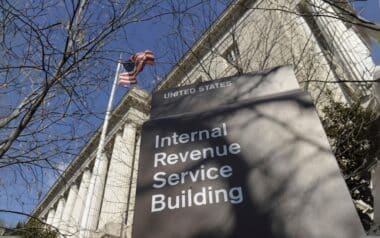Public sector workers are set to receive an additional £1 billion annually in pension contributions, complementing their recent pay increase. This adjustment follows the announcement of a 2.8% salary rise for millions of teachers, civil servants, and NHS employees by Chancellor Rachel Reeves.
This decision is expected to raise the taxpayer’s annual burden for public sector pensions to over £37 billion. Neil Record, a former Bank of England economist, criticized this cost as largely overlooked, while the TaxPayers’ Alliance expressed growing frustration over taxpayers’ ongoing financial support for these pensions.
Trade Unions Push Back Despite Government’s Efforts to Prevent Strikes
On Tuesday, the Chancellor confirmed a 2.8% pay rise for public sector workers, surpassing the projected inflation rate of 2.6%. However, trade unions have voiced strong opposition to the increase and are considering strike action in protest.
Over the past two years, the Labour government has implemented significant pay increases—reaching up to 22%—to prevent widespread staff walkouts.
Pay Rise Adds Pressure to Escalating Public Sector Pension Costs
The latest pay hike is expected to exacerbate the rising costs of public sector pensions. In the fiscal year 2022-2023, total pension contributions were approximately £44 billion, with £30 billion funded by taxpayers as employer contributions. The government projects these costs to rise to £53 billion by 2024-2025, with taxpayer contributions estimated at £36 billion.
Following the pay rise, Mr. Record predicts total pension contributions could reach £55 billion next year, increasing the taxpayer burden to £37 billion—£1 billion more than the previous year.
Breakdown of Public Sector Pension Costs and Projected Increases
- Fiscal Year 2022-2023
- Total Contributions: £44 billion
- Taxpayer Contributions: £30 billion
- Projected Costs for 2024-2025
- Total Contributions: £53 billion
- Taxpayer Contributions: £36 billion
- Estimated Costs Following Pay Rise
- Total Contributions: £55 billion
- Taxpayer Contributions: £37 billion (an increase of £1 billion)
Concerns Over Fiscal Responsibility
Record commented, “As is often the case, the implications of public sector pensions on fiscal policy are being conveniently overlooked by politicians. This matter is being approved without sufficient scrutiny, resulting in an additional billion pounds in public sector expenditures.”
He highlighted that total contributions have surged from £44 billion to £53 billion in just two years, outpacing inflation and reflecting excessive public sector spending.
He added, “These pensions are extraordinarily costly. The private sector addressed this issue two decades ago by shifting to defined contribution pensions. Public sector employers may face increasing pressure to abandon these schemes due to their growing costs. If that happens, the government would need to cover existing pension payouts, potentially costing billions.”
Taxpayers’ Alliance Criticizes Public Sector Pensions and Calls for Reform
John O’Connell of the TaxPayers’ Alliance remarked, “Taxpayers are weary of funding the generous pensions of public sector workers. While the government imposes burdens on small businesses and agricultural workers, public sector employees continue to receive substantial pay rises.”
He called on the Labour government to focus on delivering promised reforms rather than granting additional benefits to the public sector.
Government Defends Pay Decisions Amid Ongoing Debate on Fiscal Responsibility
Defending the recent decisions, a government spokesperson said, “It is crucial that pay awards are fair to both taxpayers and public sector employees. Our Plan for Change ensures that all government sectors align with the priorities of working households.”
As debates continue, the financial and political implications of these decisions remain at the forefront of public sector funding discussions.









